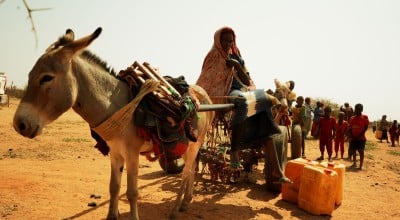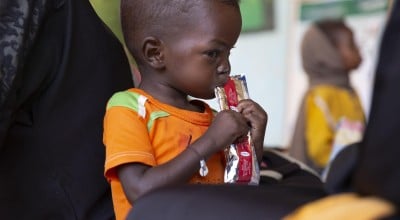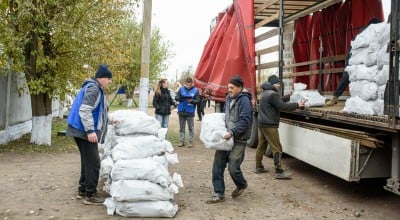
Read our 2024 annual report

Knowledge Hub
What it means to be a humanitarian in 2019
On World Humanitarian Day, Concern Worldwide Chief Executive Dominic MacSorley reflects on the increasingly dangerous circumstances facing aid workers around the world.
In the darkest of times, the humanitarian spirit shines brightest. Nowhere was this more evident to me than in the days immediately after the devastating earthquake struck Haiti in 2010.
When I flew into Port au Prince, it was like a bomb had dropped on the city. The destruction was everywhere, with dead bodies on the street, people wandering around aimlessly. No one was left unaffected.
I remember thinking ‘My God, where the hell do we even start?’ And to be honest, I really wasn’t sure until I got to the office and I met some of the Concern Haiti staff. They had all lost homes, family, or friends. Many were sleeping on the streets, and yet amazingly within 24 hours almost all had showed up to get to work on the emergency response. Wilson, our head driver, turned to me and said, “Dominic, we’re here, we are alive, and we are ready to start work. Let’s go.”
Survivors themselves, Wilson and the Concern team were still trained humanitarian professionals, hardwired to act in the interest of the community.
I knew then that the spirit of the people of Haiti had not been destroyed - it was stronger than any earthquake. It was a moment that I will never forget, a reminder that humanity and the human impulse to reach out to others is indestructible.
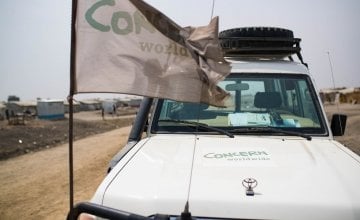
Today (August 19) is the 10th annual World Humanitarian Day, a day dedicated to the men and women on the frontline of crisis who bring relief and assistance to people in desperate need. It is also a day when we pay respect to those that have lost their lives, who have been wounded, attacked, or held hostage working in response to humanitarian crises.
Humanitarianism is an expression of a most basic human instinct- to recognise humanity in others and act when it is being affronted. It is about protecting life and restoring hope and dignity, a compassionate response to suffering caused by man or the elements. It is needed now more than ever.
In 2019, there is an astounding level of humanitarian need around the world, with over 130 million people whose lives have been upended by conflict or natural disasters and are dependent on humanitarian assistance for survival.
The volume of need is not only overwhelming, but humanitarian aid work itself is also becoming more difficult, dangerous, and in many contexts, extremely restricted.
Over 80% of humanitarian need is now located in insecure contexts and as our work increasingly takes place in conflict zones , humanitarian agencies like Concern often find ourselves with complex dilemmas, weighing up the safety and security of staff with the urgency of the delivery of assistance.
A core element of being humanitarian is being neutral and impartial -- a commitment to delivering assistance with dignity, irrespective of the person or context. This impartiality isn’t just a principle, it is integral to affording humanitarians security in war and an assurance that they will not be targeted. However, in recent years attacks on aid workers and medical facilities have soared.
According to the 2019 Aid Worker Security report, last year was the second deadliest year on record for those delivering humanitarian assistance, with 131 aid workers killed in the course of their work. In a single month alone, 26 aid workers were killed in Syria during the fall of Eastern Ghouta. As clashes in the Idlib province of Syria have intensified this year civilians and aid workers have been relentlessly targeted.
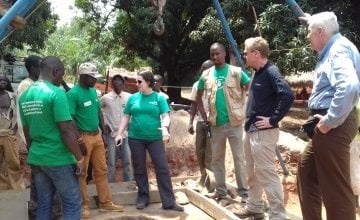
Yet, despite the astounding civilian death toll, Syria has largely faded from the international radar, with United Nations High Commissioner for Human Rights Michelle Bachelet lamenting that a campaign of airstrikes which killed 103 people in 10 days last month was met with ‘a collective shrug’ from the international community. For aid workers still operating inside Syria, it can feel like nobody outside even cares anymore.
Closer to home, the Italian parliament’s series of bills criminalising search and rescue in the Mediterranean are a bare faced attack on humanitarian work. Aid groups have described the most recent bill, passed only in the last fortnight, as a “declaration of war against the NGOs who are saving lives at sea.”
This is just one example of the political self-interest that has grown in recent years, an exercise in clamping down on compassion at the expense of those who need help and those who seek to help them.
Against this backdrop, it is more important than ever to show solidarity with aid workers who operate in some of the most difficult and inhumane situations in the world.
They are not just the NGO nurses, doctors, logisticians, drivers and project managers. They are the community health workers risking their lives to tend to Ebola patients in DRC, the surgeon working underground amidst relentless aerial bombardment in Syria, the engineer from Longford working for Concern in the searing heat of South Sudan.
These are ordinary people in extraordinary circumstances. They deserve assurance to the greatest extent possible that they will not become targets themselves and that they can operate in the confidence that they will not be breaking the law for doing what’s right.
Humanitarians from all walks of life need champions and fortunately, Ireland continues to be unwavering in its support for frontline aid workers and the work they do. That support has been the lifeblood of Concern for over 50 years.
Our mission is to tackle extreme poverty and respond to humanitarian emergencies- whatever it takes. But we have only been able to do that with the backing of the Irish people, whose generational experience of conflict and hunger has forged a unique impulse of empathy and compassion.
This humanitarian impulse to respond remains alive in Ireland and it is the continued support of the Irish public that allows us to action that impulse where it is most needed.
Humanitarian response is not a strategy. It is not even a choice; it is an obligation. When we fail to protect the protectors, those on the ground that are saving lives, we aren’t just denying the humanity of those who are suffering, we are destroying our own.



